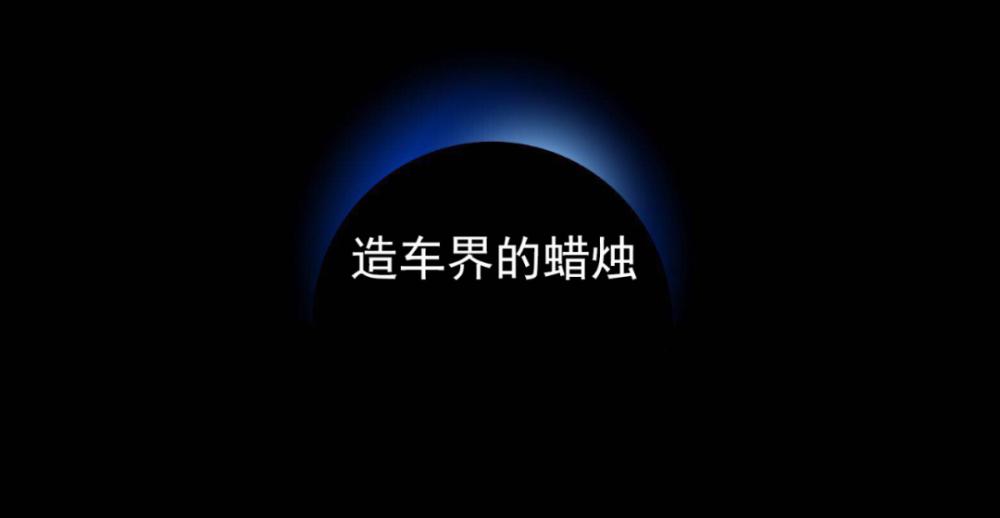
On Friday, Beiqi Langu, the first new energy vehicle in the A-share market, issued dozens of announcements in one go, the most important of which was the 2021 annual report.
The annual report was set aside, and in the announcement there was a vote on the board's proposal to consider the 2022 business plan, and Daxing found that someone had abstained. This solemn vote was cast by Leng Yan, a director of Beiqi Blue Valley. In addition to the director status of Beiqi Blue Valley, Leng Yan also has a key identity:
Executive Vice President of Daimler Investment GmbH Greater China.
Daimler is Mercedes-Benz. Here is a brief introduction to the background, Mercedes-Benz and BAIC not only joint venture Beijing Benz, but also baiqi subsidiary BAIC blue valley of the fifth largest shareholder.
What does Mercedes-Benz mean for BAIC? Last year, of baic's 175.916 billion yuan of revenue, Beijing Benz accounted for 95.5%, up to 167.966 billion yuan, and the gross profit of Beijing Benz was 10 times that of BAIC's own brand.
After the Song River went to Liangshan, the seats were rearranged, and there were 9 people in Chao Gai who had seats, and there were 27 seats in song Jiang.
Moreover, it is not the first time that Leng Dong has abstained from voting. When reviewing Beiqi Blue Valley's 2021 business plan last year, he also abstained from voting for the following reasons:
The bill falls short of its requirements for decision-making.
Regarding the abstention of the cold director, Beiqi Blue Valley twice said that the company's management respects the opinions of the directors and fully implements the directors' requirements in its work.
What opinions and requirements the directors have, they can probably read some clues from the annual report.
Daxing simply refined a few figures, last year, Beiqi Blue Valley revenue of 8.697 billion yuan, attributable to the net profit of 5.244 billion yuan.
After the release of the annual report, many news have reported good news, saying that the revenue of Beiqi Blue Valley has risen by 65% year-on-year, and the profit situation is good. After all, they lost a net loss of 6.464 billion yuan in 2020, and this year they have achieved a good result of less than one billion yuan.
But everything is afraid to look at it from another angle.
Daxing took a look at the production and sales data of the annual report. In 2020, they produced a total of 13,200 vehicles, compared with the net loss, for each electric vehicle produced, Beiqi Blue Valley lost an average of 490,000 yuan.
By 2021, Beiqi Blue Valley has produced a total of 6369 electric vehicles, compared with their net losses, for every electric vehicle produced, Beiqi Blue Valley has an average loss:
823,300 yuan.
Daxing calculated, a Model 3 standard version of the price of 280,000, if someone to buy BAIC's electric vehicle, they do not have to produce, directly free to send customers a Model 3, so that each car they themselves can earn more than 500,000?
In fact, Beiqi Blue Valley has also supported the new energy subsidies before the decline, relying on the cheap advantage and the majority shareholder BAIC shares is the main supplier of the taxi market, their highest annual sales exceeded 150,000 vehicles.
The market will always change, when the consumer group of new energy vehicles has become the people, Beiqi Blue Valley has experienced a cliff-like sales plunge. Of the 150,000 cars they sold in 2019, C-end consumers accounted for 30%. By 2020, the overall sales figure plummeted by more than 80%, and C-end sales were even more sluggish.
What makes them even more uncomfortable is that subsidies are still less. Daxing flipped through the annual report, and in 2018 and 2019, they almost took 2 billion yuan in government subsidies. Gone are those good days now.
At the beginning of last year, before and after the first abstention of directors of Leng, Beiqi Blue Valley began to lay off employees on a large scale, and even replaced the chairman. But in the annual report, they attribute the poor sales to the epidemic. Last year, this reason was used again.
Last year, the production and sales of pure electric passenger cars in the Chinese market were 2.76 million units and 2.73 million units, respectively, an increase of 179% and 174% year-on-year.
In 2020, Beiqi Blue Valley launched the high-end brand Jihu, which sold more than 1,000 vehicles that year. Last year, they set a sales target of 12,000 units, selling 4,993 units.
Logically, although it can't catch up with Tesla and Wei Xiaoli, it is also a good result for Beiqi Blue Valley. In a promotional article, Jihu said that his marketing last year was very successful, with a cumulative exposure of 6 billion + times, 330,000 + sales leads, and broke through all circles of people. Such a good result, the marketing expenses only cost:
400 million.
This year, Polar Fox has set an even grander sales target of selling 40,000 vehicles. Then, Leng Dong directly abstained.
Or shall we send the Model 3 directly?
Notes Company - Occupation is easier to pass
Give me one to look at, and I can pry the whole planet